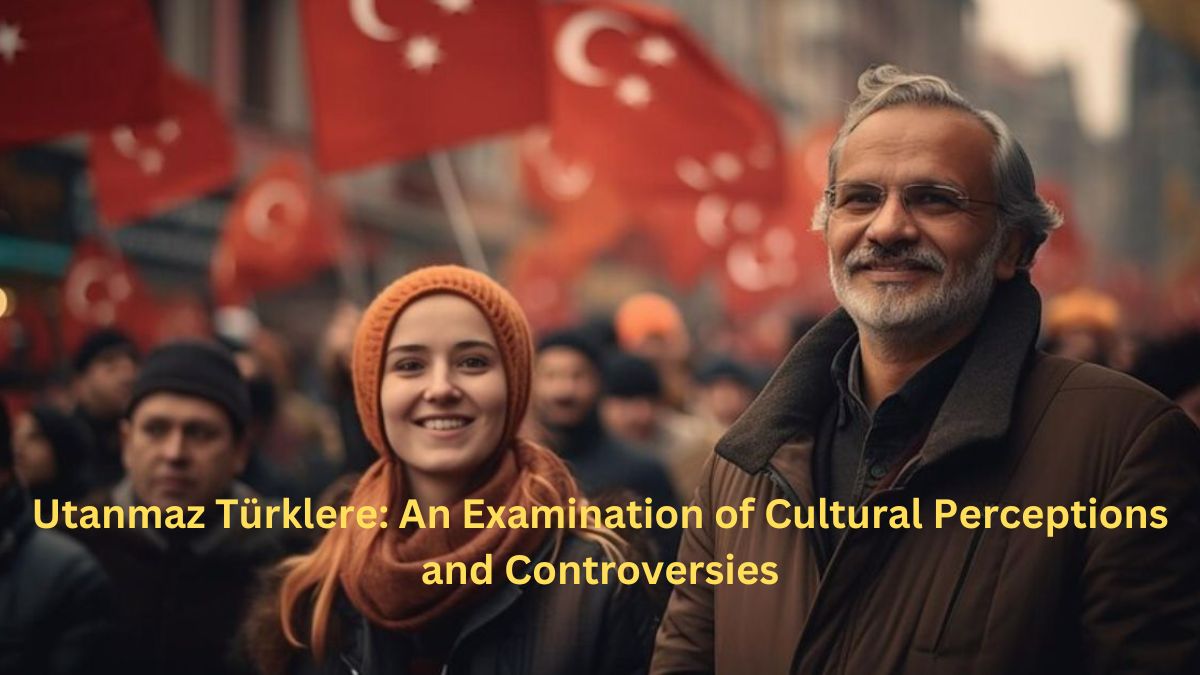In a world increasingly shaped by cultural narratives, the term “utanmaz Türklere” or “shameless Turks” sparks intrigue and controversy alike. But what lies beneath this provocative label? As we peel back the layers of history, identity, and societal attitudes, we uncover a tapestry woven from pride, prejudice, resilience, and rebellion. In this blog post, we’ll delve into how cultural perceptions impact both individuals and communities within Turkey and beyond—challenging stereotypes while illuminating the complexities that define modern Turkish identity. Join us on this journey as we confront misconceptions head-on and explore the vibrant stories that often go untold in discussions about culture!
Introduction to Utanmaz Türklere
Utanmaz Türklere—this term stirs a pot of emotions and discussions within Turkish society. It dances on the line between cultural pride and stigma, often igniting heated debates about identity and belonging. But what does it really mean? For many, it conjures images of defiance against societal norms, while for others, it represents a stereotype that’s hard to shake off. This exploration dives deep into the heart of these perceptions, unraveling the layers behind Utanmaz Türklere and how they shape our understanding of contemporary Turkish culture. Join us as we navigate through history, media portrayals, controversies, and emerging movements aimed at redefining this complex concept.
Overview of Cultural Perceptions and Stereotypes
Cultural perceptions and stereotypes surrounding Utanmaz Türklere are complex and often contradictory. Many view this term as a badge of honor, representing individuals who defy societal norms. Others see it as a derogatory label, indicating moral laxity.
Media portrayals frequently exaggerate these traits, reinforcing negative stereotypes. This can lead to misunderstandings about what it means to be part of this cultural group. As such, the term evokes strong reactions—both admiration and disdain.
Additionally, ethnic identity plays a significant role in shaping perceptions. Different communities may interpret Utanmaz Türklere through their unique lenses. This adds layers of complexity that are often overlooked in broader discussions.
Stereotypes tend to simplify individual experiences into neat categories. Yet life is rarely that straightforward for those labeled as such. Each person’s narrative is rich with nuances that challenge these simplistic views.
Historical Context of Utanmaz Türklere
The term “Utanmaz Türklere” has roots embedded deep within Turkish history. It reflects a complex interplay of identity, nationalism, and cultural evolution over centuries.
Historically, the Ottoman Empire played a significant role in shaping perceptions of the Turkish identity. As it expanded across continents, diverse cultures mingled with traditional beliefs. This blending often led to varying interpretations of what it meant to be ‘Turkish.’
In modern times, especially during the Republic’s establishment in 1923, national identity was redefined. At this juncture, concepts like honor and shame became focal points for many citizens.
Discussions surrounding Utanmaz Türklere emerged as societal norms shifted amidst globalization and modernization. These changes challenged long-standing traditions while simultaneously sparking debates on morality and self-expression within contemporary society.
Thus, understanding its historical context opens up avenues for deeper analysis of current attitudes toward Turks deemed ‘shameless’ or unconventional.
Controversies Surrounding the Term
The term “Utanmaz Türklere” ignites passionate debates among various groups. Some view it as a badge of honor, representing those who unapologetically embrace their identity. Others see it as derogatory, suggesting a lack of morals or respect.
Critics argue that the label perpetuates negative stereotypes about Turkish people. They believe it unfairly categorizes individuals based on specific behaviors rather than recognizing diversity within the culture.
Moreover, social media plays a crucial role in shaping perceptions. Memes and viral content often distort meanings, amplifying misunderstandings.
In academic circles, some scholars advocate for reclaiming the term to empower communities associated with it. Their goal is to shift its connotation from one of shame to one of pride.
This ongoing discourse reflects deeper societal issues regarding identity and acceptance in Turkey today. Each perspective adds complexity to how “Utanmaz Türklere” is understood by both Turks and outsiders alike.
Analysis of Media Portrayal and Representation
Media portrayal of “Utanmaz Türklere” often reflects deep-seated stereotypes. This representation can either reinforce negative perceptions or challenge them.
Television shows and films frequently depict characters labeled as “Utanmaz” in extreme ways, emphasizing a lack of morality or cultural understanding. Such portrayals create an exaggerated image that overshadows the complexities within Turkish culture.
Social media also plays a role in shaping these narratives. Viral posts can amplify both support and criticism for those identified with this label, leading to polarized viewpoints among audiences.
Documentaries have started to take a more nuanced approach. They explore personal stories, allowing individuals to share their experiences beyond the stereotype. This shift offers a broader perspective on what it means to be part of Turkish society today.
The impact of these representations is profound, influencing not only public perception but also self-identity among those who feel associated with the term.
Impact on Turkish Culture and Society
The term “Utanmaz Türklere” has stirred deep emotions within Turkish culture and society. It acts as a mirror, reflecting the complexities of national identity.
Many individuals grapple with its implications, feeling both pride and shame intertwined in their cultural narratives. This duality fosters rich discussions about what it means to be Turkish today.
Artistic expressions have emerged that challenge stereotypes associated with this term. Musicians, filmmakers, and writers are exploring themes of resilience and authenticity, reshaping public perception.
Moreover, social movements are gaining traction as communities seek inclusivity and understanding. Activists emphasize celebrating diversity instead of conforming to narrow definitions.
As these conversations unfold, they influence younger generations who yearn for a more nuanced portrayal of their heritage. This ongoing dialogue is crucial for evolving societal norms around identity in Turkey.
Challenging and Changing Perceptions: Examples and Movements
In recent years, a wave of initiatives has emerged to challenge the stereotypes associated with Utanmaz Türklere. Artists, activists, and scholars are at the forefront of this movement. They aim to redefine cultural narratives.
Social media campaigns have gained traction. These platforms serve as spaces for open dialogue about identity and representation. Hashtags like #UtanmazTürk challenge negative perceptions while celebrating diverse Turkish identities.
Cultural festivals also play a crucial role in shifting mindsets. They showcase traditional and contemporary art forms that reflect the richness of Turkish heritage. Through music, dance, and literature, these events promote understanding across communities.
Educational programs in schools encourage critical thinking about cultural stereotypes. By incorporating stories from various perspectives, students learn to appreciate complexity rather than judge hastily.
The impact is palpable; conversations are evolving around what it means to be part of the modern Turkish identity amidst global influences.
Conclusion
As discussions around the term “Utanmaz Türklere” continue to unfold, it’s crucial to embrace a broader perspective. Engaging with diverse narratives helps dismantle stereotypes and fosters understanding. Through conversations that highlight both the challenges and triumphs of Turkish culture, we can pave the way for more inclusive dialogues.
Grassroots movements and cultural initiatives are already making strides in redefining perceptions associated with Utanmaz Türklere. By promoting authentic representations within media and art, these efforts challenge long-standing biases. They encourage society to view individuals beyond labels while respecting their unique experiences.
The path toward inclusivity requires patience but offers immense potential for growth. Acknowledging different viewpoints enriches our collective narrative about identity, culture, and belonging. As we navigate this complex landscape together, there lies an opportunity for healing through empathy and shared stories.
Ultimately, embracing the varied layers of what it means to be part of the Turkish community will lead us closer to a future where all voices matter—especially those labeled as Utanmaz Türklere.
Read more on Global Ranker News

